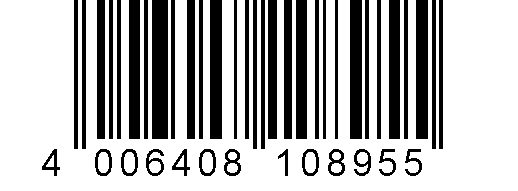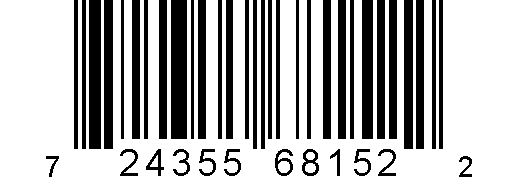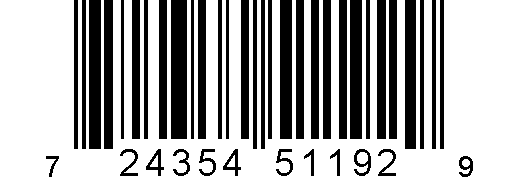Romantic & Late Romantic Music
From Schumann to Rachmaninoff
Media Review / Listening Diary 2012-07-30
2012-07-30 — Original posting (on Blogger)
2013-08-01 — New standard layout applied
2014-11-03 — Re-posting as is (WordPress)
2015-10-03 — Added reference to LP recording with Ulf Hoelscher and Michel Béroff
2016-06-27 — Brushed up for better readability
2023-11-23 — Split off vocal works & Brooklyn Rider
Table of Contents
Robert Schumann: Novelletten, op.21
Ludwig van Beethoven: Piano Variations opp. 34, 35 (“Eroica”), 76
Robert Schumann: Novelletten Nr.2, 4, and 8 from op.21
Alto / Amazon MP3-download (230 – 238 kbps)

The Beethoven variations on this CD will be discussed in separate postings; this is just about the Novelletten Nr.2, 4, and 8 from op.21 by Robert Schumann (1810 – 1856). I did not know these pieces before: the original recording on LP (from 1970) only featured the Beethoven variations — the Schumann Novelletten (note the typo on the cover image!) were only added for the CD and download releases (the CD has been unavailable for a while, the download version only became available just now).
The Interpretation(s)
Svjatoslav Richter‘s interpretation of these pieces—a live recording—is great. He makes them sound “natural, just right”. He does not try to show off virtuosity—although these compositions are considerable challenges to the pianist. His emphasis is on the big phrases / evolutions. There is a brilliant, even spectacular recording of the Novellette Nr.2 with Grigory Sokolov on YouTube (also live, of course) that is quite different from Richter’s: Sokolov uses less legato, focuses on clarity, transparency — his articulation is often as clear as Horowitz’ Scarlatti (and Sokolov’s own interpretation of Couperin’s “Le Tic-Toc-Choc” comes to mind!). The two interpretations are rather different, but both are very valid approaches, fascinating interpretations, and I like the music!
Romantic Duo Performances
The Recordings
Vladimir Spivakov & Sergei Bezrodnyi
César Franck, Maurice Ravel, Richard Strauss: Violin Sonatas
Vladimir Spivakov & Sergei Bezrodnyi
Capriccio 10 895 (CD, stereo); ℗ 2001

Ulf Hoelscher & Michel Béroff (LP only)
César Franck, Richard Strauss: Violin Sonatas
EMI 1C 065-02 995 Q (LP, stereo); ℗ 1978
Booklet: (LP cover)
LP only, currently not available

Itzhak Perlman, Martha Argerich
Beethoven: Violin Sonata op.47; Franck: Violin Sonata in A major
See also Beethoven, Sonata for piano & violin in A, op.47 (“Kreutzer”)
Itzhak Perlman & Martha Argerich (live)
EMI Classics 7243 5 56815 2 2 (CD, stereo); ℗ / © 1999

Steven Isserlis & Stephen Hough
Sergej Rachmaninoff: Cello Sonata in G minor, op.19; 2 Pieces for Cello and Piano op.2
César Franck: Cello Sonata in A; 2 Lieder (*) “Le Sylphe” and “Panis Angelicus”
Steven Isserlis & Stephen Hough (*: with Rebecca Evans)
Hyperion CDA67376 (CD, stereo); ℗ 2003

Truls Mørk & Jean-Yves Thibaudet
Sergej Rachmaninoff: Cello Sonata in G minor, op.19; 2 pieces for cello and piano, op.2
Nikolai Myaskovsky: Cello Sonata Nr.1 in D, op.12
Truls Mørk & Jean-Yves Thibaudet
Virgin classics 5 45119 2 (CD, stereo); ℗ / © 1996

The motivation for this post section was a concert at Wigmore Hall in London that I attended (together with my wife & my daughter) in April this year, see my posting “Han-Na Chang & Finghin Collins, 2012-04-28“), where Rachmaninoff’s cello sonata caught my attention, so I was screening Amazon for good interpretations of that composition (so far not featured in my collection). Han-Na Chang hasn’t recorded this yet, unfortunately — would have been nice to compare her playing with established contenders! At least, I found two viable / promising, relatively recent recordings, Isserlis / Hough, and Mørk / Thibaudet. As the Rachmaninoff sonata is not long enough to fill en entire CD, both these recordings also feature additional compositions, some of which I already had in my collection, hence the additional CDs listed above:
Nikolai Myaskovsky: Cello Sonata Nr.1 in D major, op.12
Truls Mørk & Jean-Yves Thibaudet added the cello sonata Nr.1 in D major, op.12, by Nikolai Myaskovsky (1881 – 1950), featuring two movements (attacca), almost 20 minutes of post-romantic music — very nice and expressive (maybe with the exception of a few moments / passages that I found slightly superficial), and all well-played by the two artists.
Sergei Rachmaninoff: Vocalise from the 14 Songs, op.34
Steven Isserlis & Stephen Hough added Rachmaninoff’s famous Vocalise from the 14 Songs, op.34, in a version for cello and piano, which I heard played by Han-Na Chang & Finghin Collins as opening of their concert — confirming my reservations towards Han-Na Chang’s excessively soft articulation at the beginning of the piece. On the other hand, Truls Mørk‘s vibrato is often rather fast and strong, which for me does not express sentiment and expression: I would have preferred an articulation that (more) closely imitates the human voice (and in my memory Han-Na Chang did better in that respect!).
Sergei Rachmaninoff: Sonata for Cello and Piano in G minor, op.19
In a quick comparison of the main composition on these CDs, Rachmaninoff’s sonata for cello and piano in G minor, op.19, I definitely prefer the interpretation by Steven Isserlis & Stephen Hough (my rating: 4.5 / 5) which is better balanced and dynamically much more differentiated than Truls Mørk & Jean-Yves Thibaudet‘s interpretation (rating: 3.8 / 5): Truls Mørk completely dominates the recording with his dense, vibrato-rich tone (reminds me of the way in which Artur Grumiaux dominates over Clara Haskil in their recording of the Beethoven violin sonatas!), barely leaving room for differentiation on the piano. Thibaudet is playing well, but he only excels in a few forte passages.
The recording by Steven Isserlis & Stephen Hough is much more differentiated, more intimate, more expressive (unless one takes dense, vibrato-rich and loud for expressive!), more transparent, more subtle — though less spectacular! Some of the deficiencies in Truls Mørk‘s recording may be attributed to the sound engineer, but what counts is the end result.
Both recordings also feature Rachmaninoff’s two pieces for cello and piano, op.2: the above comments also apply here (my ratings: 4.5 and 3 out of 5, respectively).
César Franck: Sonata for Cello and Piano in A
Finally, César Franck’s sonata for cello and piano in A: this is commonly known as sonata for violin and piano, but according to Isserlis‘ comment, there are indications that the composer initially wrote this composition for the cello, and only later changed his mind in order to present it to his friend Eugène Ysaÿe as wedding present. Whether that’s true or not, I can only say: this works — very well, indeed!
Overall, I actually prefer the interpretation by Isserlis and Hough (rating: 4.0 / 5) over the ones for violin and piano by Perlman & Argerich (rating: 3.2 / 5) and by Spivakov & Bezrodnyi (rating: 2.5 / 5). Sure, the violin offers more brilliance, intensity (maybe) and drama — the cello on the other hand gives more intimacy, subtlety (at least in the interpretation by Isserlis & Hough). I also prefer Isserlis over Perlman because of the latter’s strong & dominant vibrato; this is even more of a problem with Spivakov who is featuring an extremely fast, trembling vibrato along with trills that are too rapid and too mechanic.
A Legacy Recording
I also have a recording of this sonata on LP, played by Ulf Hoelscher and Michel Béroff (see above), but this is no longer available (never made it to CD, apparently), and I’m not set up to listen to LPs, so I’ll not discuss this here. On the recording with Isserlis & Hough, the Franck sonata is surrounded by two songs “Le Sylphe” and “Panis Angelicus” by the same composer, in a good interpretation by Rebecca Evans, accompanied by cello and piano; I particularly like “Le Sylphe” — more than “Panis Angelicus”, but that’s maybe because the latter melody is known too well?
Other, ongoing projects:
- Beethoven, 15 Variations and Fugue in E♭ about a theme from “Die Geschöpfe des Prometheus”, op.35 (“Eroica Variations”)
- Beethoven, String Quartets — op.131
Listening Diary Posts, Overview













